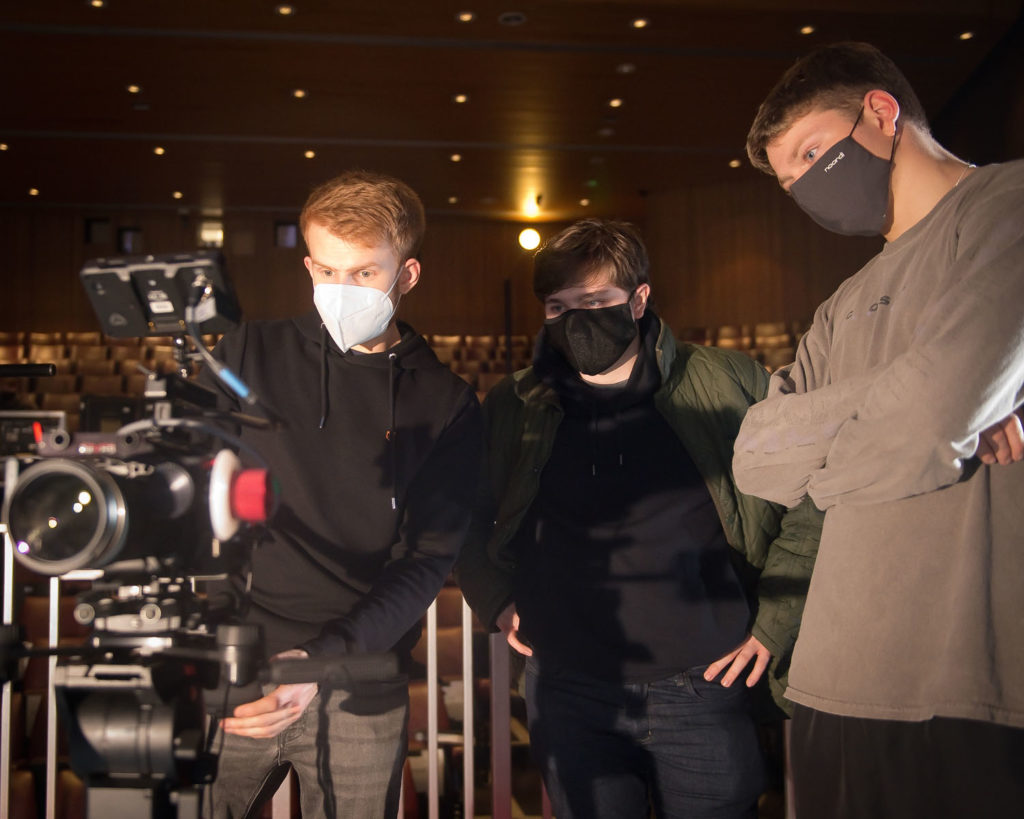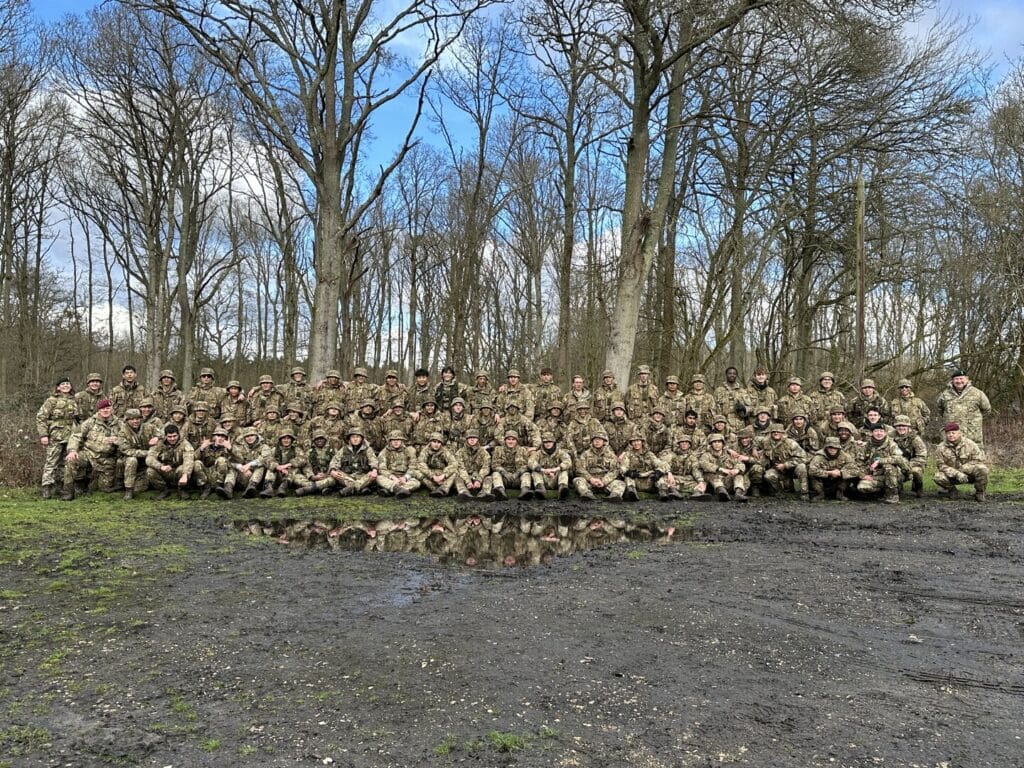Eton prides itself on the excellence of student contributions to school life. From design and sport, to drama and social action, there is a powerful appetite for innovation and creative exploration.
At the end of each year, the corridors of the Farrer Theatre are filled with student actors, lighting, stage, and sound designers and exceptional directors, gearing up to produce the Summer School Play. 2020 was, of course, a little different. Shakespeare’s Hamlet was due to run for three nights, but was sadly cancelled as a result of the first lockdown. With regular Zoom meetings during Eton Virtual however, keeping the acting company engaged with the text, it became clear that there was a way to resurrect the school play, so they turned to film.
Press Officer Toby Lawson interviewed Eton’s Director of Drama, Scott Handy, to find out more about the unexpected transition of Hamlet from stage to screen.
“With the acting company ‘out of business’, there were two main objectives. One was to share the work. A play, unlike other artforms, doesn’t mean anything unless it’s witnessed, so we had to share it. The second objective was to find a kind of closure for all of the actors who had been working on this for months.
One of the huge problems about doing a normal play is that it involves people being in the light, but a large amount of people being in the dark, under great pressure in constrained space. Whereas you construct film like a jigsaw puzzle, and you can ensure safety by filming short bursts and then reassembling the plot digitally. So, we changed the whole medium in order to suit the conditions of the pandemic.
One of the blessings of this period has been witnessing how creative and inventive students are. It was actually a really joyful and surprising experience. To do something new was really invigorating for all of us.
Scott Handy, Director of Drama
Hamlet, of course, tells of the tale of a troubled Prince who is told to avenge the death of his father, the King of Denmark, by his very ghost. One of the characteristics of a great work of art is that it becomes a touchstone for different experiences. I think Hamlet is a touchstone for the life of an adolescent. I think there can be a sense of isolation with young men, and a feeling of not being understood by the generation above.
One of the wonderful things about the play is that the problem of the actor is the problem of the character. Any actor who plays Hamlet thinks ‘Oh God, how can I possibly play Hamlet? I can’t play Hamlet, I’m not good enough to play Hamlet!’. Simultaneously, they’re also thinking ‘I’m going to be the greatest Hamlet there’s ever been, how exciting!’. These two things co-exist at the same time, just as they do in the character of Hamlet. There is a sort of truthfulness about the experience the actor goes through that bleeds into the play.
In terms of COVID-19, there were so many lines that just seem to be written yesterday. For instance, ‘there seems nothing to me but a foul and pestilent congregation of vapours’. I haven’t heard a better description of Coronavirus than Hamlet’s.
I think that the greatest theatre performances are best experienced live, in a theatre, and I think that the best film is made knowing that you’re only making a film. However, the experience of working with the students has convinced me that we should continue exploring the potential of film and drama. This summer we are not having a Summer School Play, we’re going to host a Summer School Film, and it will be a voyage of discovery. We’re now planning to have an annual Summer School Film, instead or as well as a Summer School Play because our students are highly versed in the vocabulary. They’ve already watched hundreds of hours of the greatest cinema ever made and recognise that it as the predominant artistic form of the last century.”
Congratulations to Mr Handy on his direction of Hamlet, producer Mr Bradshaw, and the cast and crew.






